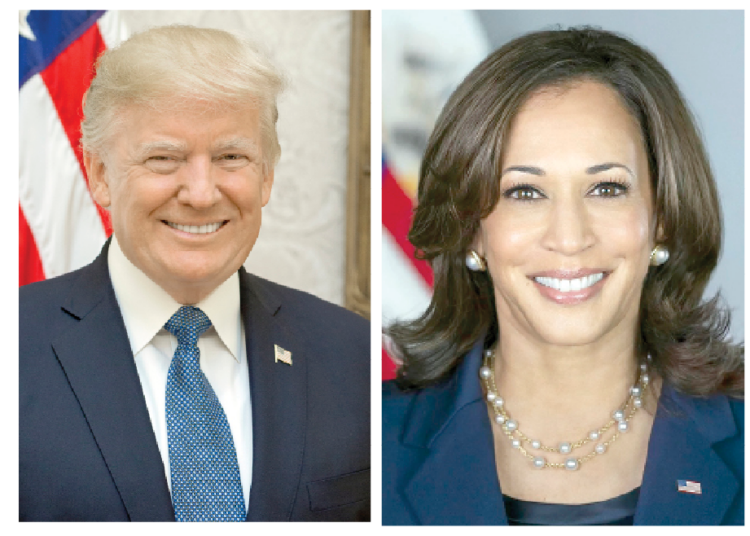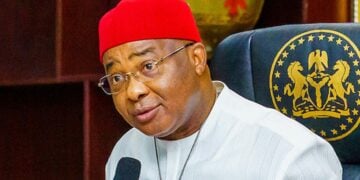Following a tense and intense election campaign, the 2024 US General Election is finally here.
According to the Election Lab of the University of Florida, by Sunday night, two days ago, nearly 80 million Americans had already voted, demonstrating popular interest in the election.
A sequence of fascinating events lies ahead over these two months. Among them, in just three weeks, the Republican party candidate and former President, Donald Trump, will be sentenced in his hush-money case in New York.
By law, in mid-December, members of the Electoral College are scheduled to meet in their respective states and in the District of Columbia to select the president and vice president. One week later, on December 25, their electoral votes must be received by the president of the Senate, who is the vice president and the Democratic presidential candidate, Kamala Harris.
On January 6, the vice president will preside over the Electoral College’s vote count in a joint Congress session. Ms. Harris could wind up pronouncing herself the first woman to be elected US president.
What would this election mean for Africa?
The only certain comfort—should Harris emerge—is that Africa would have someone in the White House to talk to. That may not mean any significant change in the status quo beyond the presence of a door, but at least there would be one.
Remember: while President Biden is now scheduled to visit Angola next month, just weeks before the end of his tenure, he has spent nearly four years without any state visits to Africa, fundamental reforms or partnerships, or even efforts to advance his declared support for two nominal permanent UN Security Council seats for Africa.
On the other hand, the Biden-Harris administration did initiate Prosper Africa to boost trade and investment between the US and African nations. At the US-Africa Business Summit in July 2023, which was hosted by the Corporate Council on Africa and the Government of Botswana, the US announced that since the US-Africa Leaders Summit in December 2022, it had helped close 75 new deals with African countries for a total estimated value of $5.7 billion in two-way trade and investment. It also helped close over 900 deals across 47 African countries for a total estimated value of $22 billion.
To his credit, Trump was the original author of Prosper Africa in 2018, partly in response to China’s and Russia’s growing interest in Africa. His government advanced the African Growth and Opportunity Act (AGOA), which, since 2000, has allowed certain African countries duty-free access to the US market for a variety of products.
Since policies like these often have far more mileage in political calculations than in real economic impact, they are expected to remain in place for the US no matter who wins this election.
However, there are other issues, and one of them is perception. In 2018, Trump unveiled his contempt for African countries, referring to them as “shithole” while expressing preference for immigrants from such places as Norway.
In an extension, in his 2024 campaign, he has repeatedly declared that he will deploy the largest deportation operation of immigrants in American history as part of restoring his most controversial immigration policies. It is to be expected, then, that such deportations will not be against Africans.
Should he carry out this policy or threat, it would hit African countries very hard. Nigeria, which has 327,000 citizens in the US, depends on foreign remittances, which currently average about $20bn per annum, to revitalise its collapsing naira.
Any deportations would not only eat deep into this source of foreign exchange, but it would also pile tremendous pressure on the fragile government of President Bola Tinubu, which has already engineered an economic nightmare scenario for Nigerians.
It may also be remembered that in February 2020, Trump added Nigeria to a list of countries whose citizens he had banned from obtaining permanent visas in the US. Three years earlier, he had spoken disparagingly about Nigerians, telling officials in the Oval Office that once they had seen the US, they would “never go back to their huts” in Africa.
This suggests that should Trump re-enter the White House, Nigerians may become a principal casualty of his distaste for Africans, splitting families and inflicting pain on both sides of the Atlantic.
No information is available at this time about how Nigerians and other Africans are voting in this election. Still, while the black vote overall is uncertain, it is most likely that the African Diaspora, like other ethnic and cultural groups negatively profiled by Trump, will have a say.





